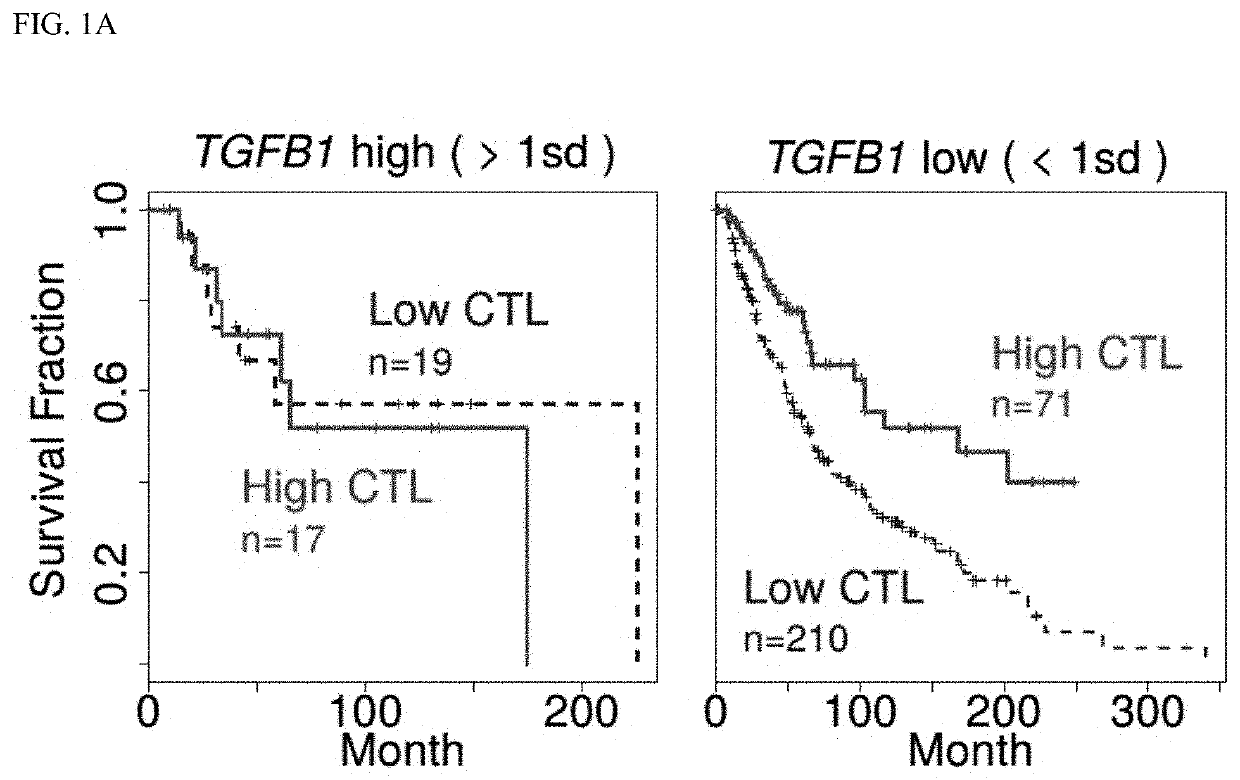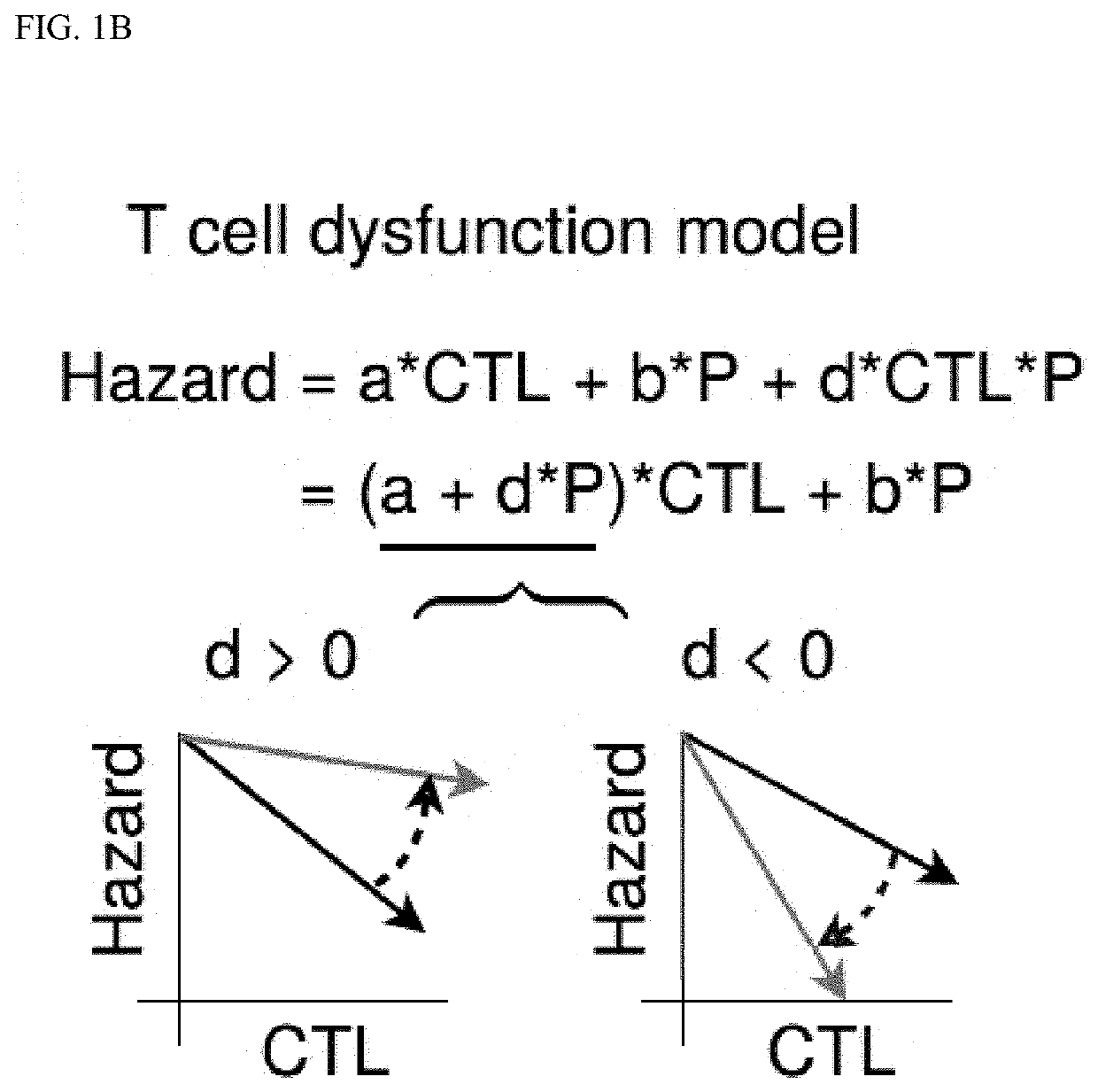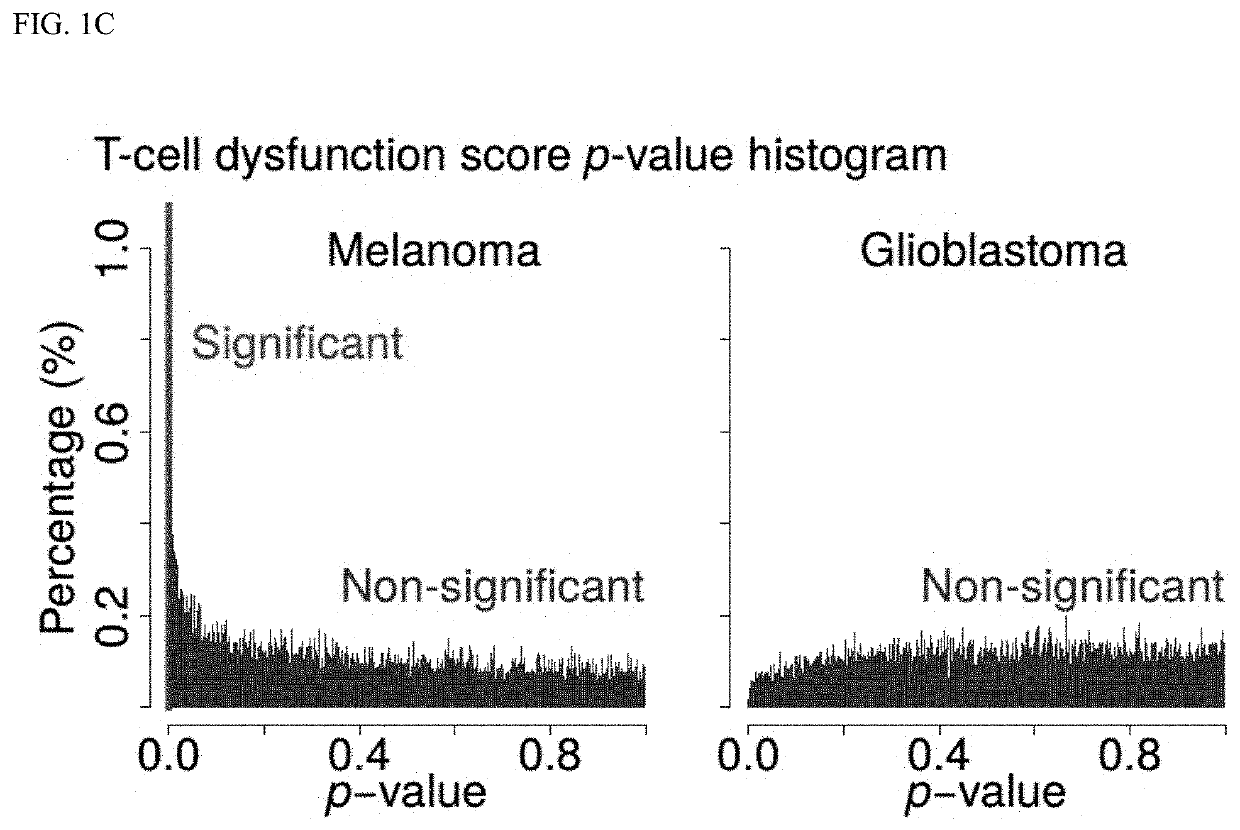Compositions and methods comprising digital signatures to predict response and resistance to targeted therapy and immunotherapy
a technology of immunotherapy and digital signatures, applied in the field of compositions and methods comprising digital signatures to predict the response and resistance of targeted therapy and immunotherapy, can solve the problem that only a small percentage of patients respond to icb
- Summary
- Abstract
- Description
- Claims
- Application Information
AI Technical Summary
Benefits of technology
Problems solved by technology
Method used
Image
Examples
example 1
and Methods
[0243]The following materials and methods were used.
Data Collection of Clinical Genomics Studies
[0244]Cancer datasets were collected with both patient survival durations and tumor gene expression profiles from the TCGA (Cancer Genome Atlas Research, N. et al. 2013 Nature Genetics, 45: 1113-1120), PRECOG (Gentles et al., 2015 Nature Medicine, 21: 938-945), and the Molecular Taxonomy of Breast Cancer International Consortium (METABRIC) (Curtis et al., 2012 Nature, 486: 346-352) databases. If the clinical information is available, the breast cancer datasets were separated into subtypes of luminal A, luminal B, Her2 positive, Basal, and triple negative (partially overlap with Basal), since each subtype has a distinct degree of cytotoxic T-cell infiltration (Miyan et al., 2016 J Transl Med, 14: 227). To ensure the robustness of this analysis, the datasets were excluded from microarray platforms with less than 15,000 genes or without probes for cytotoxicity T-cell markers (CD8A...
example 2
ical Interaction Test Identifies Gene Signatures of T-Cell Dysfunction
[0260]Previous analysis showed that a subset of tumors is infiltrated by cytotoxic T cells, although in a dysfunctional state that fails to control tumor growth (Wherry, E. J. & Kurachi, M. 2015 Nat Rev Immunol, 15: 486-499). As described herein, it was reasoned that by combining transcriptome profiles of treatment-naïve tumors with patient survival outcome, known regulators of T-cell dysfunction could be identified. For example, in the TCGA melanoma study, the expression level of CD8A, CD8B, GZMA, GZMB, and PRF1 were used to estimate the cytotoxic T lymphocyte (CTL) level in a tumor (Rooney et al., 2015 Cell, 160: 48-61) (FIG. 7A). Among metastatic melanoma tumors, a higher CTL level indicates a better patient survival, but only when TGFB1 has a low expression level (FIG. 1A). This observation corroborates the known role of TGFβ cytokine (encoded by TGFB1) in promoting tumor immune escape and resistance to immuno...
example 3
Dysfunction Scores are Consistent with T-Cell Dysfunction Signatures
[0264]Previous studies in human and mouse models identified genes associated with T-cell dysfunction in tumors (Table 3). For example, a short hairpin RNA (shRNA) screen identified positive hit genes whose knockdown in T cells enhances T-cell accumulation in mouse tumors, while negative hits as genes whose knockdown decreased the T-cell accumulation (Zhou et al. 2014 Nature, 506: 52-57).
[0265]Gene expression profiles to study T-cell dysfunction are also publicly available, including the transcriptome of exhausted CD8 T cells (Giordano et al. 2015 The EMBO Journal, 34: 2042-2058), activated regulatory T cells (Wakamatsu et al., 2013 Proceedings of the National Academy of Sciences of the United States of America, 110: 1023-1028), and tumors with acquired ICB resistance (Twyman-Saint Victor et al., 2015 Nature, 520: 373-377). The positive hits are defined as genes up-regulated in the process of T-cell dysfunction or ac...
PUM
| Property | Measurement | Unit |
|---|---|---|
| temperatures | aaaaa | aaaaa |
| temperatures | aaaaa | aaaaa |
| temperatures | aaaaa | aaaaa |
Abstract
Description
Claims
Application Information
 Login to View More
Login to View More - R&D
- Intellectual Property
- Life Sciences
- Materials
- Tech Scout
- Unparalleled Data Quality
- Higher Quality Content
- 60% Fewer Hallucinations
Browse by: Latest US Patents, China's latest patents, Technical Efficacy Thesaurus, Application Domain, Technology Topic, Popular Technical Reports.
© 2025 PatSnap. All rights reserved.Legal|Privacy policy|Modern Slavery Act Transparency Statement|Sitemap|About US| Contact US: help@patsnap.com



